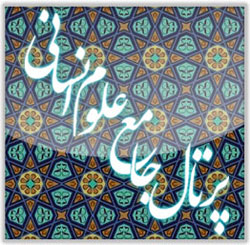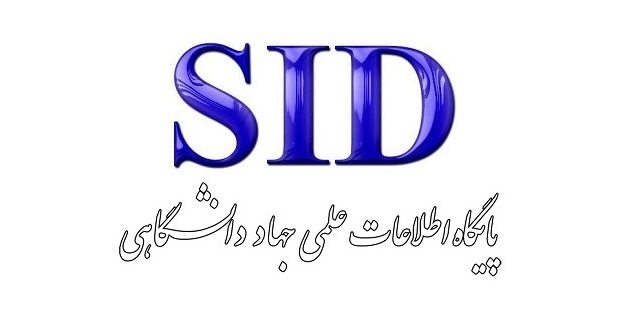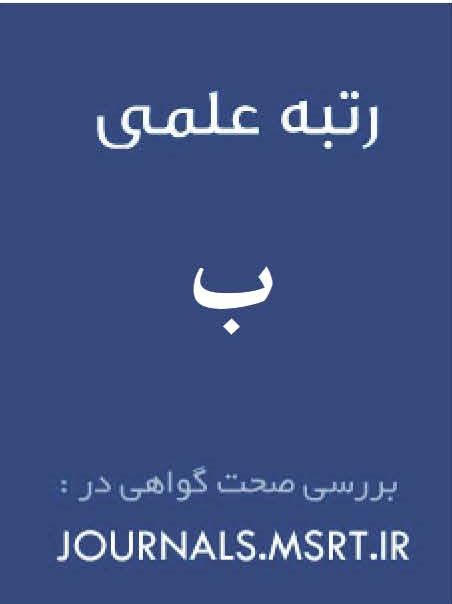Examining the Role of Moral Virtues in Mystical Conduct Derived from The Divan of Shams
Keywords:
Rumi, Ghazals of Shams, Purification of the Soul, Moral virtues, love, Patience, humility, repentance, moral vicesAbstract
The present study examines and analyzes the role of moral virtues such as love, patience, humility, and repentance in the mystical conduct of Rumi based on The Divan of Shams. Rumi, as one of the most prominent Islamic mystics, emphasizes the importance of purification and refinement of the soul in the path toward attaining divine knowledge. The main objective of this research is to identify and analyze these moral virtues, as well as to examine moral vices such as pride, greed, and suspicion, which, from Rumi’s perspective, are considered serious obstacles to the purification of the soul. The research method is qualitative and is based on qualitative and literary content analysis of selected verses from The Divan of Shams. The research data were collected and analyzed through the review of valid domestic and foreign sources. The findings of this study indicate that moral virtues, as key instruments of purification and refinement of the soul, lead human beings to spiritual perfection and proximity to God. Rumi identifies divine love as the most important driving force for liberation from worldly constraints, and he presents patience and humility as tools for combating egotistical obstacles. Likewise, moral vices such as greed and pride are recognized as serious impediments in the mystical path, and Rumi stresses the necessity of confronting these vices. The present study demonstrates that Rumi, in The Divan of Shams, introduces moral virtues as a path to self-purification and spiritual perfection. Love, patience, humility, and repentance constitute fundamental pillars in his mystical conduct. Conversely, combating moral vices is essential to reaching divine truth. It is recommended that further research be conducted on the impact of Rumi’s moral virtues on everyday and social life.
Downloads
References
1. Motahhari M. Islamic Mysticism. Tehran: Sadra Publications; 1982.
2. Hujwiri AiU, Nourbakhsh J. Kashf al-Mahjub. Tehran: Donyaye Ketab; 2004.
3. Lewis FD. Rumi: Past and Present, East and West. Oxford: Oneworld Publications; 2008.
4. Safavi SG, Burrell D. Rumi's Mystical Design: Reading the Mathnawi Book One. Albany: SUNY Press; 2009.
5. Schimmel A. Mystical Dimensions of Islam. Chapel Hill: University of North Carolina Press; 1975.
6. Chittick W. The Sufi Path of Love: The Spiritual Teachings of Rumi. New York: SUNY Press; 1983.
7. Zarrinkoub A. The Reed's Song [Sar-e Ney]. Tehran: Amir Kabir Publishing; 1998.
8. Zarrinkoub A. Step by Step to Meet God. Tehran: Elmi va Farhangi Publishing; 1998.
9. Sajjadi SJ. Dictionary of Philosophical and Mystical Terms. Tehran: University of Tehran Press; 1989.
10. Yazdi MT. Psychology from the Perspective of the Qur'an and Islamic Wisdom. Qom: Seminary Management Center; 2004.
11. Homayi J. Rumi's Essays. Tehran: Zowar Publishing; 1997.
12. Sadaqati Fard M, Abizadeh Z. Molavi and Mystical Spiritual Wayfaring. Isfahan: University of Isfahan Press; 2011.
13. Molavi Ja-DM. Ghazaliat-e Shams Tabrizi. Tehran: Mowla Publishing; 2010.
14. Shafiee Kadkani MR. Mystical Concepts in Persian Poetry. Tehran: Ney Publishing; 2008.
15. Nicholson R. Rumi: Poet and Mystic. London: Allen & Unwin; 1975.
16. Chittick W, Mosharraf M. Jalal al-Din Rumi: His Life and Thought. Tehran: Nashr-e Markaz; 2009.
17. Ebrahimi M, Rostaminasab Z. The educational and moral role of Molana's mysticism in spiritual conduct. 2021.
18. Rahmanian H. The Self in Islamic Mysticism. Tehran: SAMT; 2013.
19. Darvishpour A. The impact of Molana's mystical teachings on reducing religious extremism. 2020.
20. Firoozi D. Ethics and Politics in Islam. Tehran: Ney Publishing; 2004.
21. Keshavarz F. Reading Mystical Lyric: The Case of Jalal al-Din Rumi. Columbia: University of South Carolina Press; 1998.
22. Foruzanfar B. Commentary on Rumi's Masnavi. Tehran: University of Tehran Press; 1964.
23. Tusi Na-D. Akhlaq-i Nasiri. Tehran: University of Tehran Press; 2005.
Downloads
Published
Submitted
Revised
Accepted
Issue
Section
License
Copyright (c) 2025 Alireza Izadpanahi (Author); Maryam Parhezkari; Seyed Mahmoud Seyed Sadeghi (Author)

This work is licensed under a Creative Commons Attribution-NonCommercial 4.0 International License.









